|
|
|
|
This week, delegates arrived in Dubai to begin the 28th annual United Nations climate change conference. And despite reservations about the fossil fuel-rich United Arab Emirates hosting the gathering, the talks got off to an encouraging start, with nations agreeing to form a Loss and Damage Fund that aims to compensate poorer nations.
As Matt McDonald explains, “the agreement means wealthy states and major polluters will put millions of dollars towards a fund that will in turn distribute funds to poor states harmed by climate change”.
The fund will be administered by the World Bank, and has received initial commitments totalling US$430 million. While that’s just a fraction of what is required to compensate developing countries for climate-fuelled disasters, it’s a major step forward.
Now the “Conference of the Parties” (COP) can get down to the real business of reducing emissions in line with the Paris Agreement, which seeks to keep global warming in check.
As disasters and heat intensify, can the world meet the urgency of the moment? Brendan Mackey breaks down the three key issues facing negotiators, while Jacqueline Peel takes a closer look at Australia’s role, before Climate Minister Chris Bowen heads to Dubai next week.
In a piece from our colleages at The Conversation UK, Jen Allan tells us how UN climate talks have a history of lasting through the night in search of common ground between negotiators. “They trade off issues against another. And at the end of the long summit, negotiators and ministers rely on each other to uphold bargains made over hundreds of hours of talks.”
Joshua M. Pearce, writing for The Conversation Canada, gives us a list of seven policies that could save a billion lives by 2100, ranging from immediate bans on fossil fuels and the vehicles that run on them, to worldwide mandates on clean energy and green buildings.
Given the track record of UN climate talks over the past three decades, the results may be more pragmatic than truly ambitious. So we watch with bated breath as 198 nations sit around the negotiating table yet again.
Stay tuned as we and our colleagues throughout The Conversation’s global network bring you all the news (and hopefully more breakthroughs) as the summit unfolds.
P.S. This week we launched our year-end donations drive. Monthly donations are especially important because they sustain our independence and help us plan for our future. If you value what we do and can see how it helps, please consider signing up to become a regular contributor or making a single donation of whatever you can afford.
|

|
Clare Peddie
Deputy Environment + Energy Editor
|
|
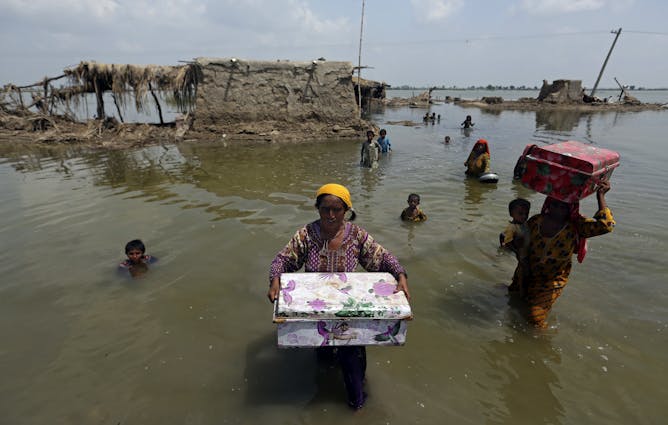
Matt McDonald, The University of Queensland
Through the Loss and Damage Fund, developed states and major emitters will compensate developing countries experiencing the most devastating effects of climate change. The fund is now operational.
|

Brendan Mackey, Griffith University
In what’s likely to be the hottest year on record, nations are gathering to try and hash out faster action on climate change. Here are the three main issues facing negotiators.
|
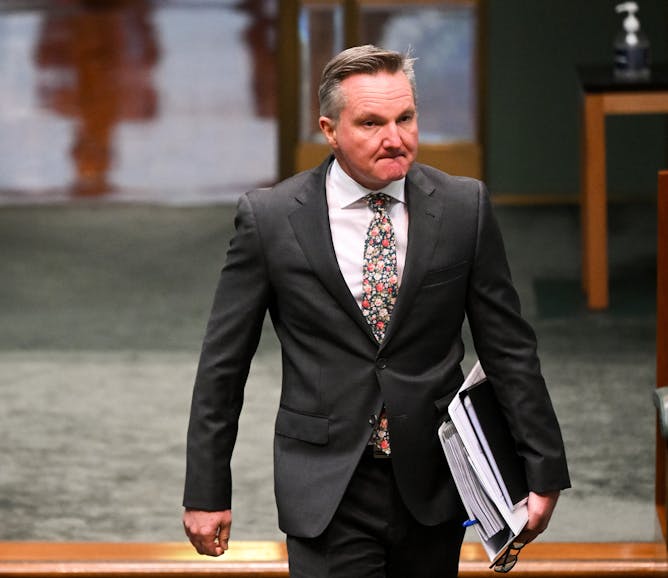
Jacqueline Peel, The University of Melbourne
New emissions projections bode well for Australia’s climate efforts – but our fossil fuel exports continue apace.
|
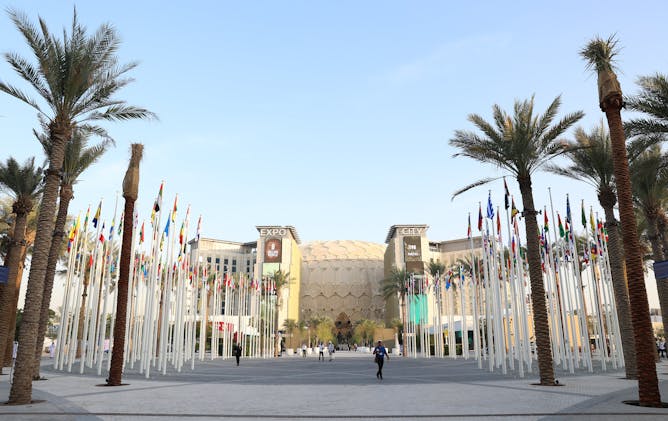
Jen Allan, Cardiff University
A COP regular worries about a conflicted host and a lack of trust.
|
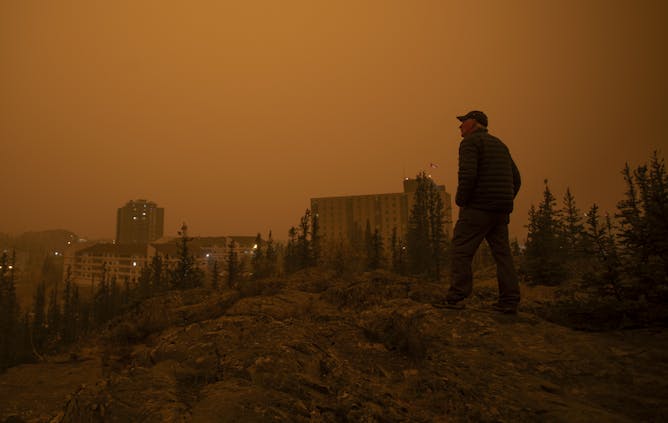
Joshua M. Pearce, Western University
A recent study found one billion people are likely to die prematurely by the end of the century from climate change. Here are seven energy policies that could save their lives.
|
Weekend long reads
|

Zora Simic, UNSW Sydney
Zora Simic has never been married, nor wanted to. She assesses two new books about feminism and marriage – Clementine Ford’s polemic against it and Rachael Lennon’s history of its reformation.
|
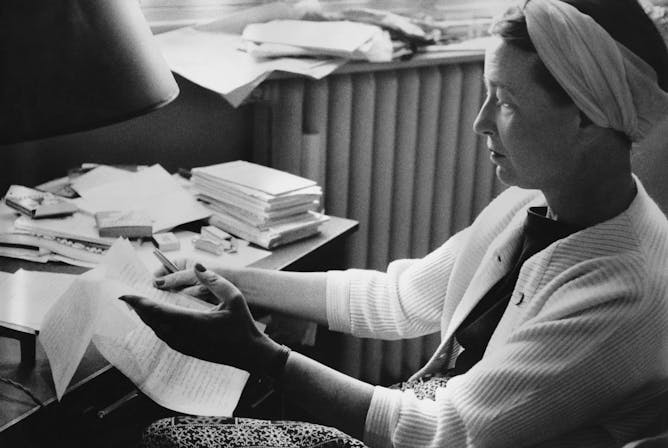
Jen Webb, University of Canberra
A new book follows four women philosophers through ten of the worst years in the 20th century, spanning 1933, the year Hitler was appointed Chancellor of Germany, to the thick of the second world war.
|
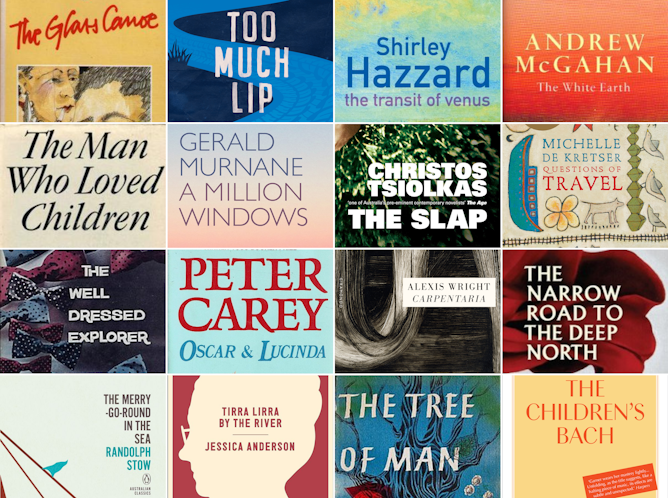
Nicholas Jose, University of Adelaide
A major new history of the Australian novel is shaped by the recent renaissance in Indigenous writing, but there are some notable omissions.
|
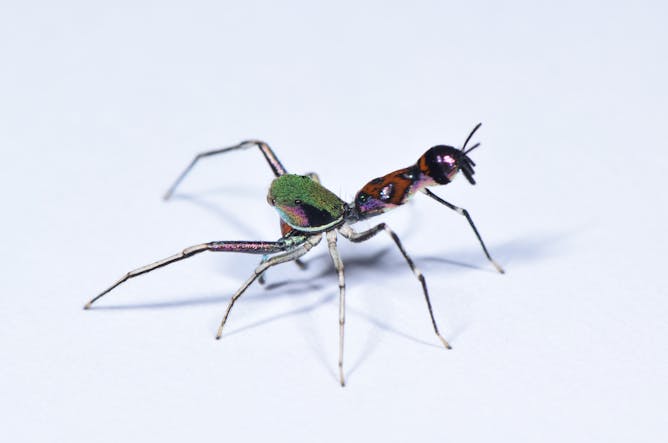
Andrew Walker, The University of Queensland
James O'Hanlon’s easy and humorous style makes Silk and Venom a readily digestible and satisfying meal for anyone with an interest in the natural world.
|
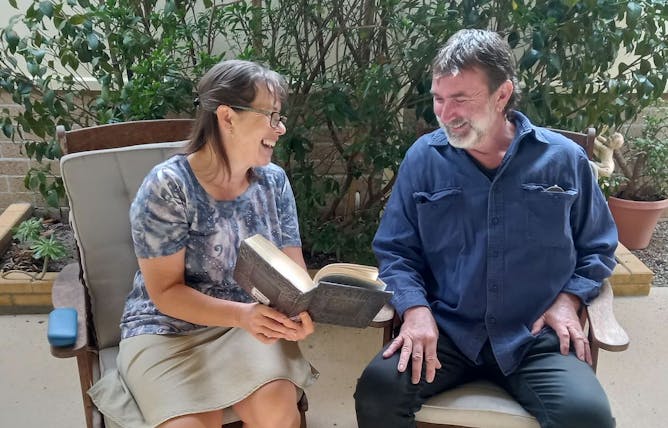
Elizabeth Wells, University of South Australia
People receiving cancer treatment can struggle to read. An innovative form of bibliotherapy brought joy and solace, enabling patients to concentrate as listeners, rather than readers.
|
Our most-read article this week
|
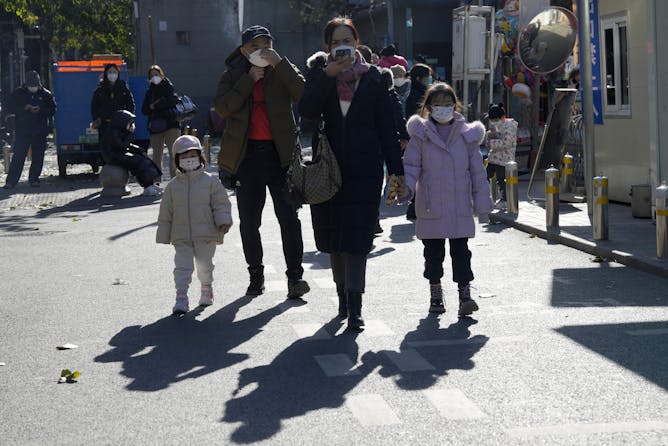
C Raina MacIntyre, UNSW Sydney; Ashley Quigley, UNSW Sydney; Haley Stone, UNSW Sydney; Rebecca Dawson, UNSW Sydney
There are a number of pathogens which are reported to be causing the outbreak of respiratory illness in China.
|
In case you missed this week's big stories
|
-
Lester Munson, University of Sydney
Former US secretary of state, Henry Kissinger has died, aged 100. His legacy, including his involvement in the Vietnam war, is long, complicated and divisive.
-
Daniel Ghezelbash, UNSW Sydney; Anna Talbot, UNSW Sydney
The High Court judges unanimously held that a person must be released from immigration detention where there is no real prospect of them being deported in the foreseeable future.
-
Celine Steinfeld, UNSW Sydney; Michael Vanderzee, Australian National University
With the support of the Greens, there’s a chance the ‘Restoring Our Rivers’ Bill will pass. Will it be enough to put the Murray-Darling Basin Plan back on track?
-
Isaac Gross, Monash University
Average prices fell in October, driven down by dives in the price of petrol and overseas travel, and an increase in Commonwealth Rent assistance.
-
Michelle Grattan, University of Canberra
The Climate statement, prepared by departmental officials, will be released by the Minister for Climate and Energy Chris Bowen on Thursday with updated security warnings.
-
Michelle Grattan, University of Canberra
The government has released a review of the employment services system. The scathing indictment has found the current system doesn’t serve the interests of jobseekers or employers.
-
Michelle Grattan, University of Canberra
An inquiry found the Home Affairs secretary used his position for personal advantage, gossiped disrespectfully about ministers, broke confidentiality and didn’t disclose a conflict of interest.
-
Luke Grzeskowiak, Flinders University; Hannah Jackson, University of Technology Sydney
The first report linking thalidomide to birth malformations was made by Australian doctor William McBride. The drug led to thousands of instances of pregnancy loss, neonatal deaths and disability.
-
Toby Walsh, UNSW Sydney
The public release of the chatbot has led to a global conversation about the risks and benefits of AI – a conversation few people were having just a few years ago.
-
Tristan Dunning, The University of Queensland; Martin Kear, University of Sydney
More than 450 Palestinians have been killed in the West Bank since the start of the year, the most since 2005.
-
Marg Rogers, University of New England
Early childhood educators are passionate but they are leaving the sector in droves.
-
Michelle Grattan, University of Canberra
The former member for Wentworth, Dave Sharma, has won the Liberal Senate spot left by the retirement of the former Foreign Minister Maris Payne. He beat former NSW minister Andrew Constance 251 to 206…
-
David Smith, University of Sydney
Trump has indicated that, in a second stint as president, he would punish his enemies and reward his champions.
-
Denis Muller, The University of Melbourne
Hundreds of Australian journalists signed an open letter to news organisations calling for better coverage of the war. It calls their impartiality into question.
-
Peter Martin, Crawford School of Public Policy, Australian National University
Sure, a good many of us don’t trust politicians – but surely politicians ought to trust politicians. History shows why they might one day need to overturn a Reserve Bank decision.
-
Stephanie Wescott, Monash University; Jessica Holloway, Australian Catholic University
Two education researchers argue it is important we don’t let ‘curriculum wars’ distract us from the other issues hurting Australian schools and education.
|
|
| |
|
|
|
The Conversation AU
Melbourne VIC, Australia
•
Full Time
|

|
|
Auckland University of Technology
Auckland, New Zealand
•
Full Time
|

|
|
The Conversation AU
Melbourne VIC, Australia
•
Full Time
|

|
|
The Conversation AU
Melbourne VIC, Australia
•
Full Time
|

|
|
|
|
| |
| |
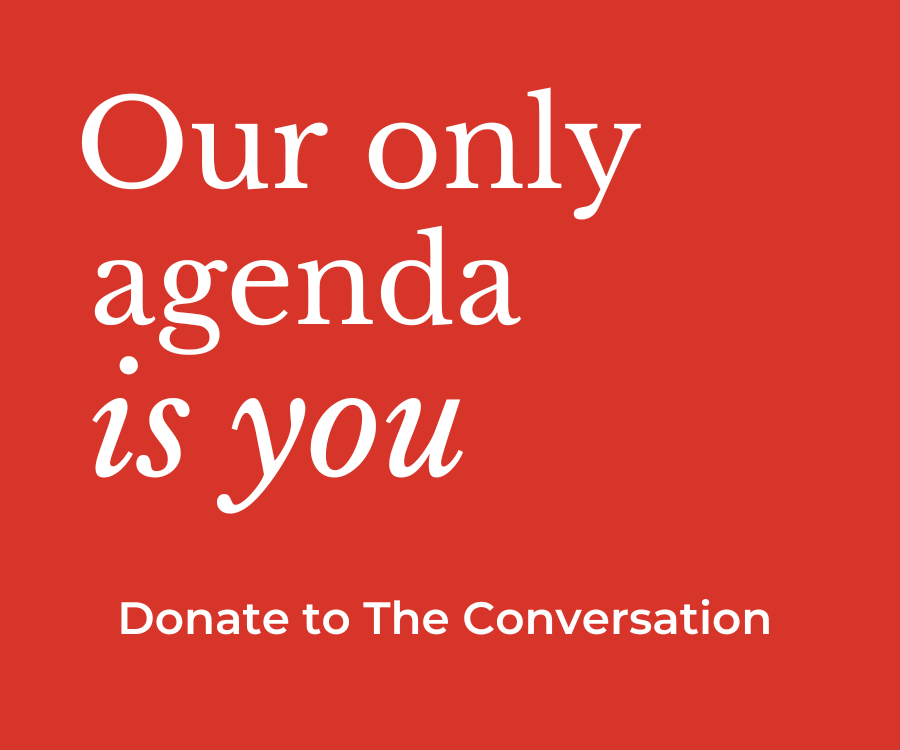
|
| |
| |
| |
Featured Events, Courses & Podcasts
|
View all
|
|
1 January 2023 - 7 October 2026
•
|

|
|
|

|
2 December 2023
•
The University of Sydney
|
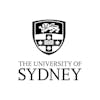
|
7 December 2023
•
Randwick
|

|
|
|
|
| |
| |
| |
| |
| |
|
|
|
|
|
|
|